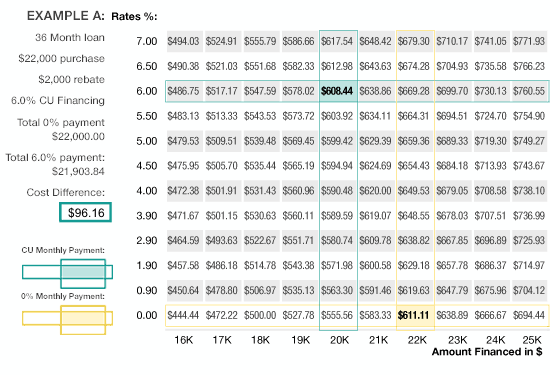Financial liberalisationthe elimination of capital controls and the likehas made all of this easier. So has the web, which enables money to be shifted worldwide rapidly, inexpensively and anonymously. For more on these questionable overseas centers, please see the full article at http://www. economist.com/node/8695139. The function of global banks, investment banks, and securities companies has actually progressed in the previous couple of decades. Let's take a look at the primary function of each of these organizations and how it has changed, as numerous have combined to become international financial powerhouses. Generally, worldwide banks extended their domestic function to the worldwide arena by servicing the needs of international corporations (MNC).
For example, a company purchasing items from another nation might need short-term financing of the purchase; electronic funds transfers (also called wires); and foreign exchange transactions. International banks offer all these services and more. In broad strokes, there are various types of banks, and they may be divided into a number of groups on the basis of their activities. Retail banks deal directly with customers and generally focus on mass-market products such as checking and savings accounts, home mortgages and other loans, and charge card. By contrast, private banks typically supply wealth-management services to households and people of high net worth. Company banks supply services timeshare release now to organizations and other companies that are medium sized, whereas the clients of business banks are typically significant business entities.
Investment banks likewise focused primarily on the development and sale of securities (e. The trend in campaign finance law over time has been toward which the following?. g., financial obligation and equity) to assist companies, governments, and big organizations accomplish their funding objectives. Retail, personal, service, business, and investment banks have generally been separate entities. All can run on the worldwide level. Oftentimes, these separate institutions have actually just recently merged, or were obtained by another institution, to develop worldwide monetary powerhouses that now have all types of banks under one giant, global business umbrella. However the merger of all of these kinds of banking companies has produced global economic challenges. In the United States, for instance, these two typesretail and investment bankswere barred from being under the same business umbrella by the Glass-Steagall ActEnacted in 1932 throughout the Great Anxiety, the Glass-Steagall Act, officially called the Banking Reform Act of 1933, created the Federal Deposit Insurance Coverage Corporations (FDIC) and implemented bank reforms, starting in 1932 and continuing through 1933.
Enacted in 1932 throughout the Great Depression, the Glass-Steagall Act, formally called the Banking Reform Act of 1933, created the Federal Deposit Insurance Corporations (FDIC) and executed bank reforms, starting in 1932 and continuing through 1933. These reforms are credited with providing stability and lowered danger in the banking market for decades. Amongst other things, it forbade bank-holding companies from owning other monetary business. This served to ensure that financial investment banks and banks would stay separateuntil 1999, when Glass-Steagall was repealed. Some analysts have actually slammed the repeal of Glass-Steagall as one reason for the 20078 monetary crisis. Because of the size, scope, and reach of United States financial companies, this historical referral point is essential in understanding the impact of US companies on worldwide services.

Global companies were likewise part of this pattern, as they sought the biggest and strongest monetary players in numerous markets to service their international monetary needs. If a company has operations in twenty nations, it prefers two or three big, international banking relationships for a more economical and lower-risk method. For instance, one large bank can offer services more cheaply and much better handle the company's currency direct exposure across numerous markets. One big financial company can use more sophisticated https://www.timeshareanswers.org/blog/why-are-timeshares-a-bad-idea/ risk-management alternatives and items. The challenge has become that sometimes, the party on the opposite side of the transaction from the worldwide company has ended up being the global financial powerhouse itself, creating a conflict of interest that numerous feel would not exist if Glass-Steagall had not been rescinded.

On the other hand, worldwide businesses have actually benefited from the expanded services and capabilities of the worldwide monetary powerhouses. For instance, US-based Citigroup is the world's biggest monetary services network, with 16,000 workplaces in 160 nations and jurisdictions, holding 200 million customer accounts. It's a financial powerhouse with operations in retail, personal, company, and investment banking, as well as asset management. Citibank's worldwide reach make it a good banking partner for big worldwide firms that want to be able to manage the monetary needs of their workers and the business's operations around the world. In truth this strength is a core part of its marketing message to international business and is even posted on its website (http://www.
Examine This Report about How Much Does It Cost To Finance A Car
htm): "Citi puts the world's biggest monetary network to work for you and your company." Outsourcing Day Trading to China American and Canadian trading firms are hiring Chinese workers to "day trade" from China throughout the hours the American stock exchange is open. In essence, day trading or speculative trading happens when a trader purchases and sells stock rapidly throughout the day in the hopes of making quick earnings. The New york city Times reported that as lots of as 10,000 Chinese, primarily boys, are hectic working the night shift in Chinese cities from 9:30 p. m. to 4 a. m., which are the hours that the New York Stock Exchange is open in New York.
First, American and Canadian companies are aiming to access wealthy Chinese customers who are technically not enabled to use Chinese currency to buy and sell shares on a foreign stock exchange. However, there are no limitations for trading stocks in accounts owned by a foreign entity, which in this case normally belongs to the trading companies. What does ach stand for in finance. Chinese traders also make money less than their American and Canadian equivalents. There are ethical issues over this plan since it isn't clear whether the usage of traders in China violates American and Canadian securities laws. In a New York Times short article estimates Thomas J.
regulators. Are these Chinese traders basically acting as brokers? If they are, they would require to be registered in the U.S." While the regulative concerns might not be clear, the trading firms are doing well and growing: "lots of Chinese day traders see this as an opportunity to rapidly gain brand-new riches." Some American and Canadian trading companies see the chance to get "revenue from trading operations in China through a combination of cheap overhead, refunds and other monetary incentives from the major stock exchanges, and suppressed demand for broader investment options among China's elite." Capital markets supply an efficient mechanism for individuals, companies, and federal governments with more funds than they need to transfer those funds to individuals, companies, or federal governments who have a lack of funds.